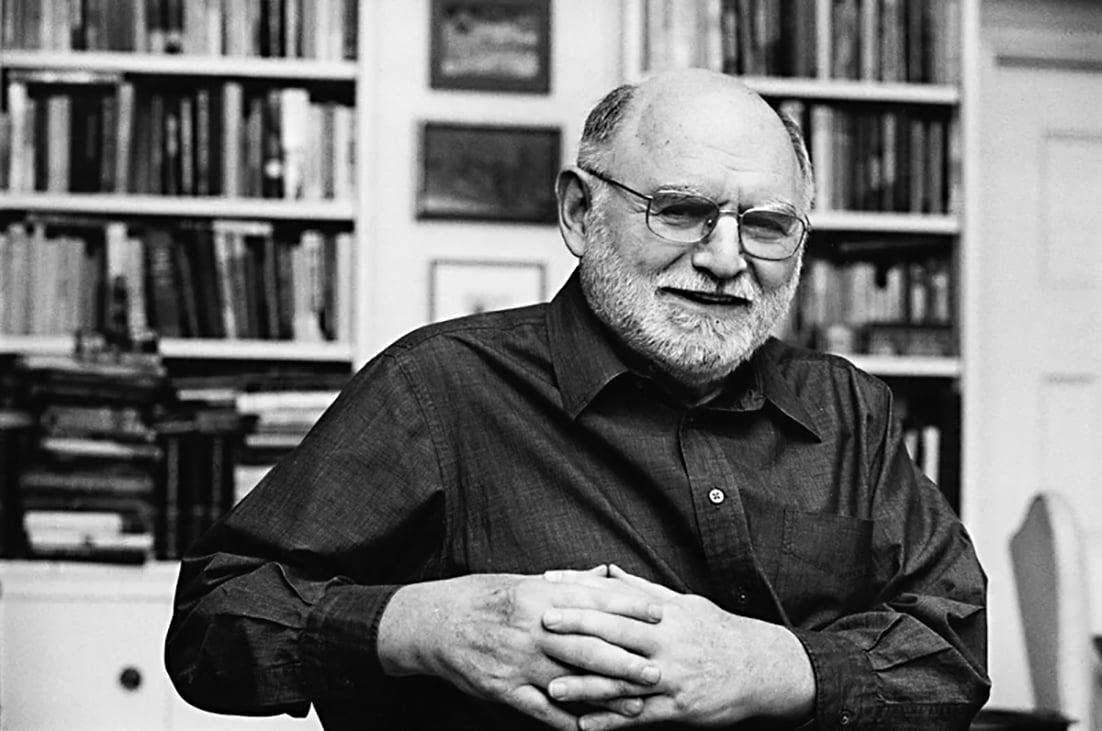Commentary
Victor Navasky, 'luminary' of the American left
A great journalist and activist, Navasky was director and then editor of the prestigious weekly The Nation, a center for the elaboration and dissemination of thought, ideas and political campaigns.

A look back at the long life of Victor Navasky passes through some of the most intense and exciting chapters in the history of the American left, from the postwar era up to today. NPR public radio described him as a “luminary” of the political left wing while announcing his death on January 24 at the age of 90.
Navasky interpreted the fruitful intertwining of quality journalism and political activism like few others have ever done in America, with a commitment and militancy that were particularly important in a country where a large left-wing party, comparable to those in Europe, has never been successful. That field was and is led by a considerable and widespread number of associations and organizations, unions, and initiatives often set up around a single theme. For these groups, all more or less connected to each other, a publication such as The Nation, the oldest American periodical (founded by abolitionists in 1865), of which Navasky was the editor (from 1978 to 2005) and then publisher, performed, and still performs the essential function of a common point of reference. A platform for the elaboration and dissemination of thought and ideas, The Nation has been and is a promoter of battles and campaigns – journalistic in conception and structure, but always strongly political – and a permanent thorn in the side of the Democratic Party, especially its liberal wing, and the unions.
The idea of a political newspaper and politically activist newspaper has also always been, and remains, the key feature of Il Manifesto. Thus there is a clear analogy between the communist daily and The Nation, despite the differences in their respective contexts. In fact, the relationship with Victor Navasky was natural from the start, and was always one of mutual interest and curiosity. Luciana Castellina knew Victor well. The foreign affairs editors at Il Manifesto were also in contact with him, especially during the years of the two Gulf Wars. Andrew Kopkind, for a long time a leading author of the New York weekly, was very familiar with our foreign affairs editors, and often wrote for us from his retreat in Vermont, even occasionally stopping by via Tomacelli to pay us a visit. We interviewed military expert Michael T. Klare who knows how many times, especially during our campaigns against the NATO bases and the placement of nuclear weapons in Italian territory. The great writer Daniel Singer, who was a friend of Rossana Rossanda and K.S. Karol, wrote for The Nation from Paris, as well as for Il Manifesto.
With Angela Pascucci we considered publishing a monthly supplement of The Nation in Italian, with its best articles, much like we had begun to do with Le Monde Diplomatique. The idea came up during a trip to Paris to complete the agreement with Ignacio Ramonet, editor of LMD. Why not also propose the same initiative to Victor? We worked on it for a while, and there was interest in New York for building a bridge between via Tomacelli and 8th Avenue, but the idea never came to fruition. It was too much for us to execute so many translations beyond those for LMD.
In an interview with NPR in 2009, Navasky said that “for many years we had an inside joke: what’s bad for the country is good for The Nation.” He was referring to the invasion of Iraq, launched by the Bush administration after the first war prosecuted in the region by his father. It was then that The Nation, under his direction, experienced a jump in subscriptions, which are the journal’s main, if not only, source of funding. The Nation became a place to express protest “for all those who were not represented at the highest levels of power,” Navasky explained. The same thing happened to Il Manifesto, and that was a period – the two Gulf Wars – of great protagonism for the communist daily, and also of greater intensity in the relationship with our American cousins.
A New Yorker, Navasky attended high school at the Little Red School House, a well-known progressive institution in Manhattan. The story of those years, and of how much they influenced his education, are summed up in a vignette he related to The Guardian in 2005:
“We had a history teacher, a Marxist who taught history from an overtly Marxist point of view. I remember that once he asked where diamonds got their value from. Someone answered: ‘Because they are beautiful.’ ‘No, no.’ Someone else said: ‘Supply and demand.’ And again he said: ‘No.’ Then someone said, ‘From the sweat of the workers in the mines!’ and he said: ‘Right answer!’”
In addition to being known as a great journalist (before joining The Nation he had been a columnist for The New York Times, and was co-founder and the first editor of the satirical American magazine Monocle published from 1956-1965), Victor was also known for several successful books, including Naming Names, which centered on the events of the witch hunt in Hollywood, and Kennedy Justice and A Matter of Opinion, dedicated to Bobby Kennedy and his years leading the Justice Department. Fascinating books to read. Indeed, he was considered a great name in his profession. A master, who also helped to “invent” new high caliber journalists of such as David Corn, David Zirin, Eric Altman, Katha Pollit, and the two “Englishmen,” the late Alexander Cockburn and Christopher Hitchens, as well as the great Andy Kopkind.
Translated by Paul M. Rosenberg
Originally published at https://ilmanifesto.it/addio-a-victor-navalsky-il-luminare-della-sinistra-americana on 2023-01-26
